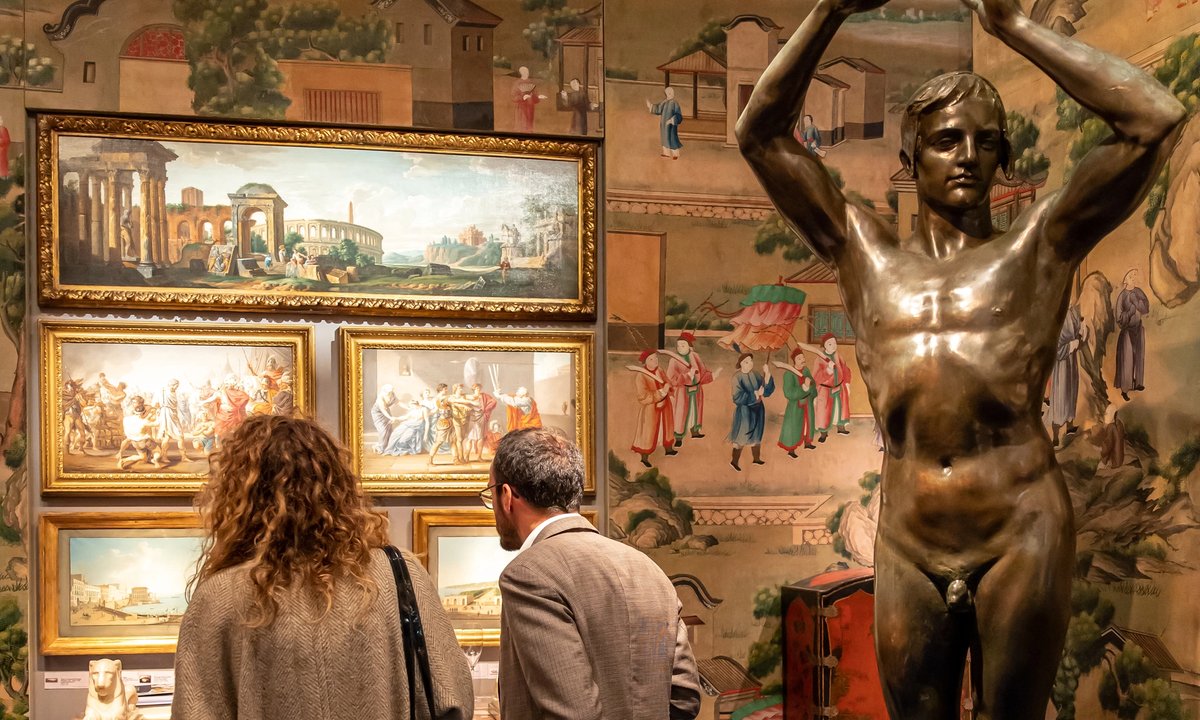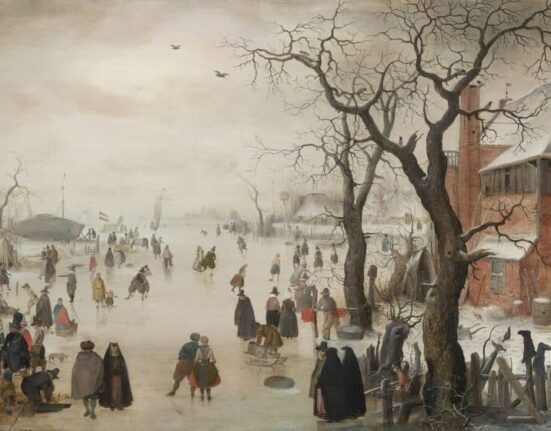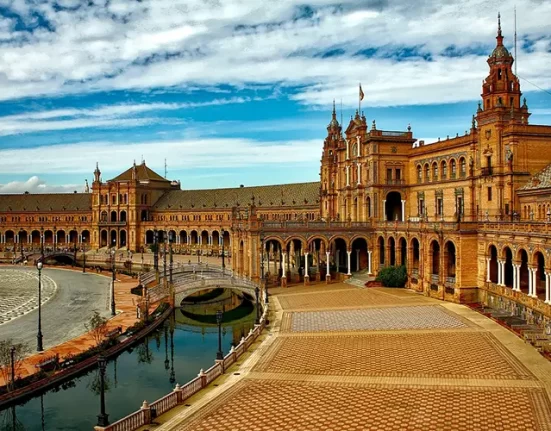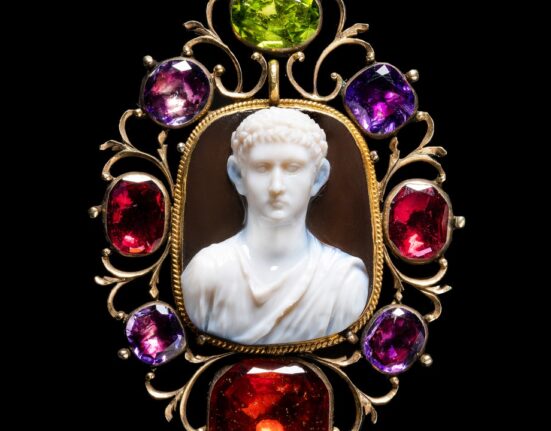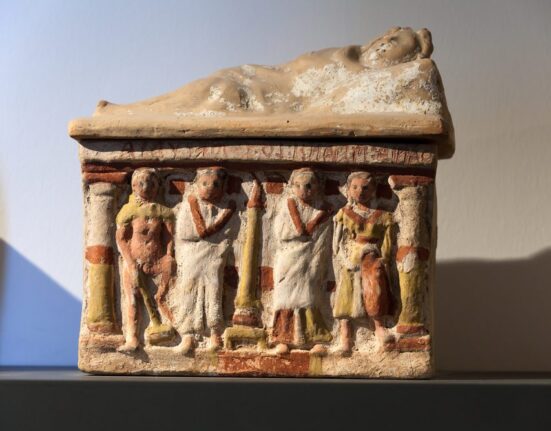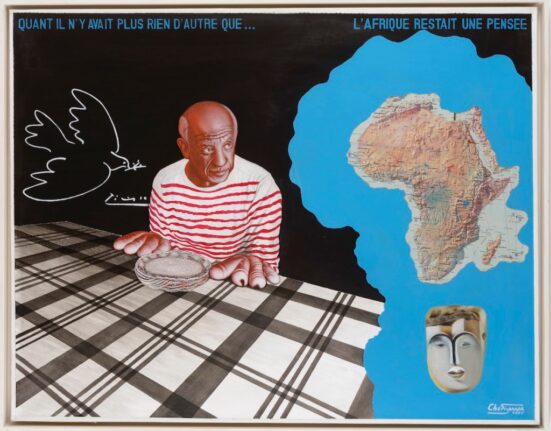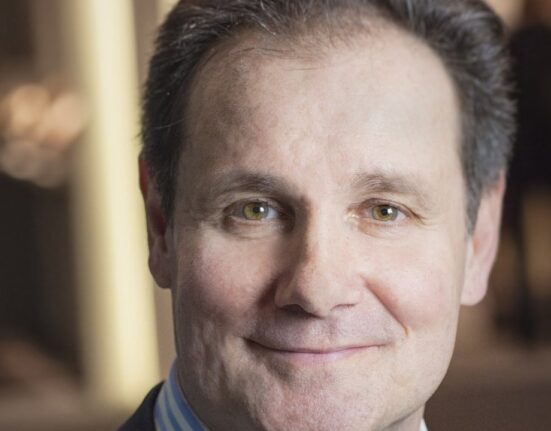Hot off the heels of Paris+ par Art Basel, the first edition of Fine Arts Paris & La Biennale opened in the art market’s city of the moment yesterday (until 13 November).
The fair is as a combination of the two formerly distinct shows—Fine Arts Paris and the antiques and arts fair La Biennale—and is taking place in the stylish Carrousel du Louvre. The venue, while smaller than the fair’s eventual planned location at the Grand Palais, from 2024 (next year’s event will be hosted at the Grand Palais Ephémère while the former undergoes renovations), the temporary venue nevertheless provided a strong setting for the organisers to demonstrate their ambition. And dealers were seemingly open to giving the new joint venture a fair shot.
From the breadth of the pieces on offer (from antiquities to contemporary, Old Masters to Islamic art), to the highly polished presentation and slick VIP catering, there is a clear ambition to contend with fair giants.
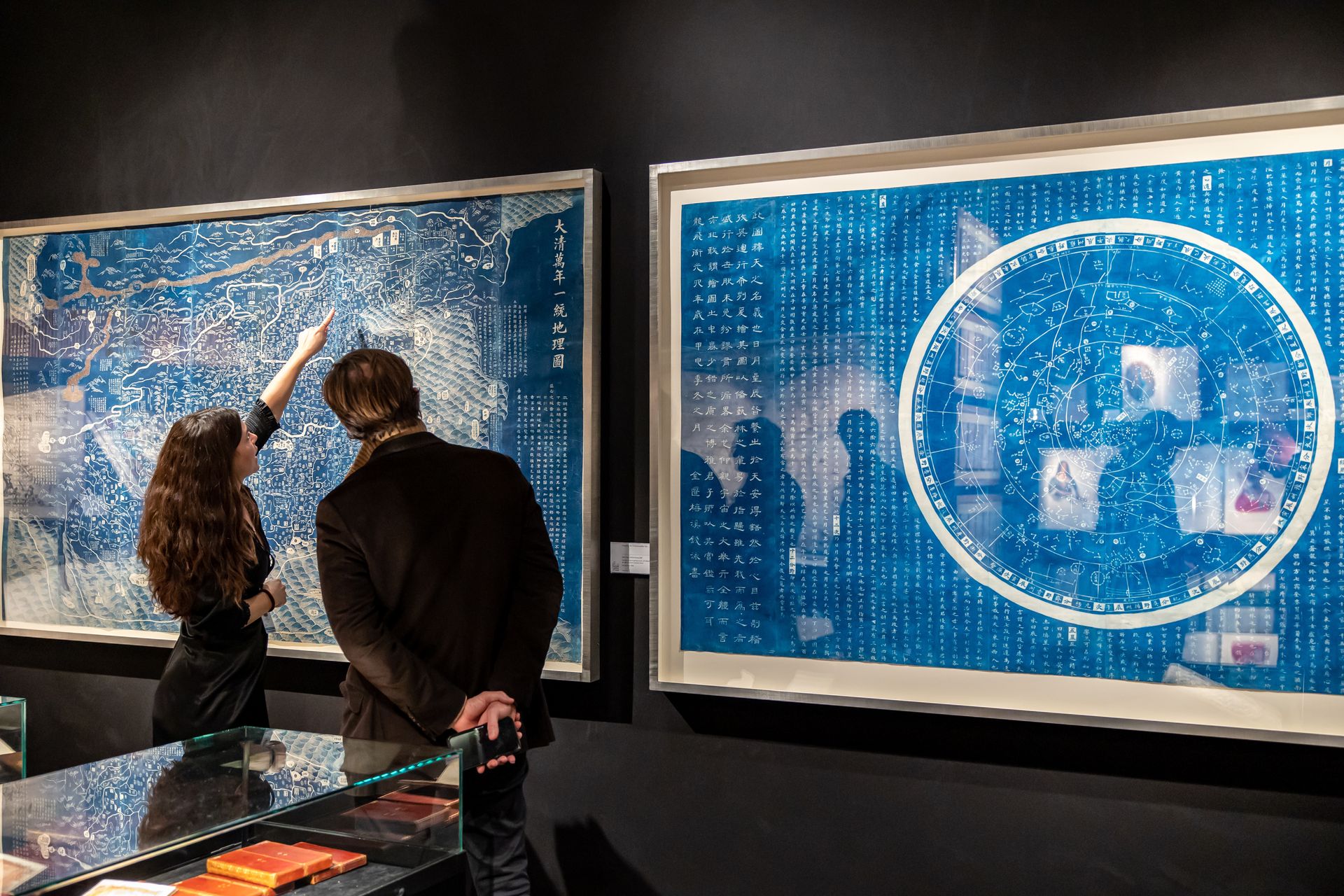
Daniel Crouch’s stand at Fine Arts Paris & La Biennale 2022. Courtesy of Fine Arts Paris & La Biennale. Photo © Tanguy de Montesson
“The organisation of the fair provides an eclecticism that brings this event closer to the major international generalist fairs such as The Brussels Art Fair (Brafa) and The European Fine Art Fair (Tefaf),” says Camille Sourget. Her eponymous gallery sold two major Reoduté’s Les Liliacées for “six-figure” sums, during the preview.
A fellow manuscript dealer, Daniel Crouch, whose display offered pieces priced between €2,500 and €1,750,000, seemingly concurred: “As this is our first time, we can’t comment on the combination of the fairs,” he says, adding, “but it seems to make sense as neither was flourishing before, and now that Paris is an increasingly important centre for the art market, it is good that they got their act together. We exhibit as economic refugees fleeing from the stupidity of Brexit in search of access to the biggest market on earth.”

Dider Claes’s stand. Courtesy of Fine Arts Paris & La Biennale. Photo © Tanguy de Montesson
Among the exhibitors were many dealers from France and Belgium—the result of pandemic-proofing by the organisers to mitigate against international travel becoming untenable. This translated to a strong presence of African and Oceanic art, often displayed with modernist works. This approach worked well for Didier Claes, which sold an ancestral figure of Soninke Dogon, from Mali, for between €250,000 and €350,000 and Patrick & Ondine Mestdagh, whose director noted that the event received a larger audience in comparison with the 2021 edition of Fine Art Paris, “due to the change of dates to more appropriate ones” and sold a Senufo bed from Ivory Coast “immediately”, for €15,000.
Old Masters were also enjoying steady sales, with Michel Descours selling 10 works on the first day, including La ronde, (1843-1845) by Louis Janmot for around €200.000, and Didier Aaron reporting the sale of a large still life by Adriaen van der Cabe, for an undisclosed sum. One of the few UK dealers to take part, Charles Beddington, teamed up with Artur Ramon. Among the works they brought is Venice: The Bacino di San Marco by Circle of Canaletto, with a price tag of around €100,000. He says: “The private view was very well attended, with as many of the leading collectors as one could hope to attract to a Paris fair.”

Galerie Steinitz’s stand. Courtesy of Fine Arts Paris & La Biennale. Photo © Tanguy de Montesson
Some of the more impressive stands were interiors focused. It is not difficult to see why Galerie Steinitz’s Chinoiserie display won the best stand prize and a tapestry by Jean Lurcat, Le Bois (1947), was drawing much attention at Galerie Chevalier’s. While the latter had not sold at its €130,000 price by the end of the VIP event, Amélie-Margot Chevalier noted “a lot of very interesting clients on gala night and many foreign clients as well.”
Contemporary art is thin on the ground, with just two galleries specialising in such works: Galleries RX and Galerie Christophe Gaillard.
So has France found itself a Tefaf contender? Not yet. The scale is still intimate—at 86 stands, it is closer in size to Brafa. But while the work on offer is high quality, top prices edge towards a couple of million euros, rather than ten million and above. However, this year’s edition has made a strong case for cementing the fair’s position in the art world’s busy calendar, and suggests that the organisers have plans for further growth.

